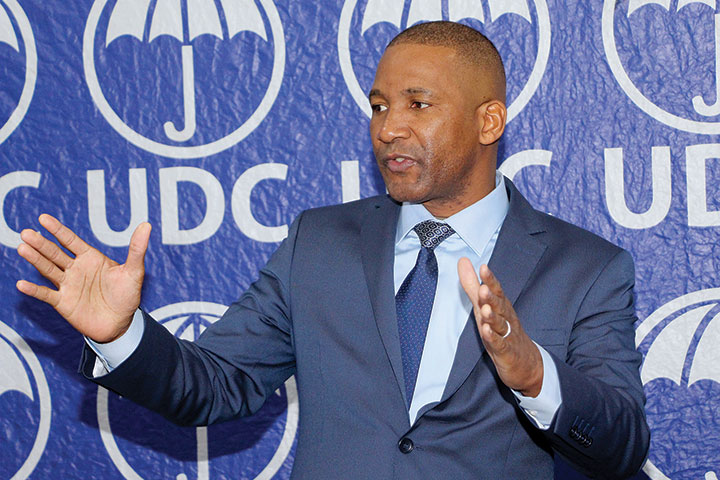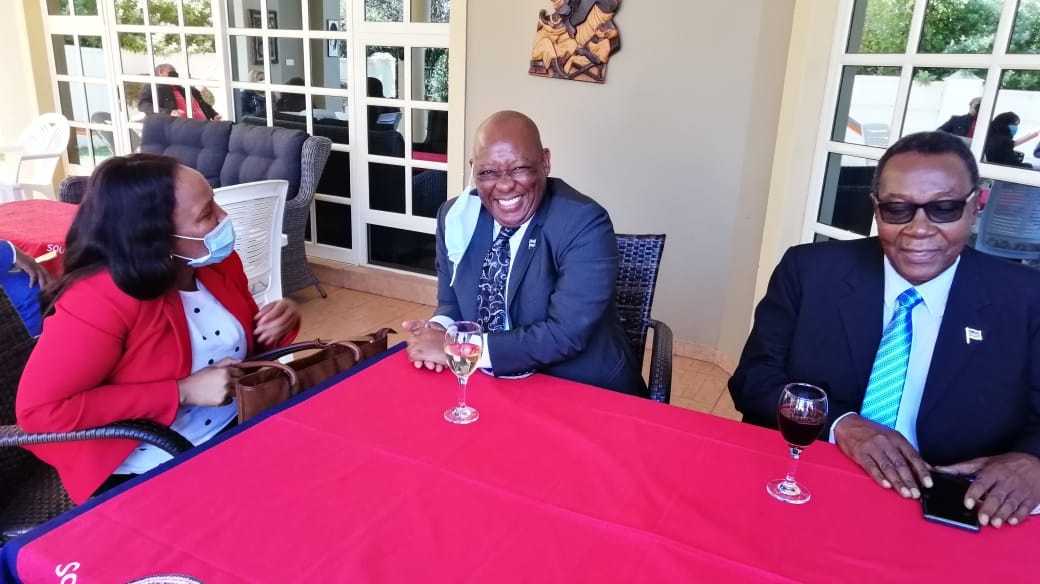
The assassination of human righyts lawyer and political activist Thulani Maseko is the spark that has ignited a revolution against Africa's last absolute monarchy
written by Mzilikazi Wa Afrika
Johannesburg – Bullets have been flying in Eswatini for the past few years before human rights lawyer, Thulani Maseko, was assassinated last Saturday night by a lone gunman in front of his wife and two children.
Anti-monarchy and pro-democratisation demonstrations started in the latter part of June 2021, as a peaceful demonstration on June 20, but later turned violent as the administration adopted a tough position against the protests and forbade the distribution of petitions.

The unrest in the country culminated in a series of murders of pro-democracy activists as well as members of security forces. The killings, including the recent cold-blooded murder of human rights lawyer Thulani Maseko, have been condemned by various civic organisations.
Amnesty International said this week that it believed Maseko was killed because of his work as a human rights lawyer and also called for a proper investigation.
Most people in the political circles believe Maseko is the latest victim of South African security company employees, believed to be former soldiers, who were brought to Eswatini by His Majesty, King Mswati III.
Speculations are rife that the introduction of the security personnel was to allegedly kill the king’s opponents who are calling for democratic reforms in the country under an absolute monarchy.
Government spokesperson Alpheus Nxumalo on Saturday said Maseko’s death was being investigated by various law enforcement agencies. He however denied the allegations that the King had hired ‘mercenaries’.
“The state has not hired any mercenaries,” he said.
He further said: “We can not make speculations on investigations. Once law enforcement agencies have concluded their work, it will become known who was responsible and why. A: Let us allow law enforcement agencies to do their work without trying to cause confusion and panic among members of the public”.
Maseko family spokesperson, Sibusiso Nhlabatsi, told the Sunday Independent this week that “it was difficult not to suspect that the state isn’t involved in his assassination.”
“People who have called for democratic changes and dialogue, like Thulani, have been dealt with by either being arrested or assassinated. Some have been forced into exile”, he said.
Nhlabatsi also bemoaned the fact that there have been former South African soldiers who are suspected of killing political activists in that country.
“South African mercenaries are roaming around killing people here in Eswatini and the government says they are here to protect the forest and train our security personnel on how to deal with counterterrorism. You don’t need a former apartheid soldier to come here and guard a forest.”
Just hours before Maseko was killed, King Mswati told a parade at the Engabezweni Royal Residence that “people should not shed tears and complain about mercenaries killing them. These people started the violence first but when the state institutes a crackdown on them for their actions, they make a lot of noise blaming King Mswati for bringing in mercenaries.”
The man believed to be the leader of the alleged security personnel, Johannes Arnoldus Pienaar, whose company, Bastion Security, has a contract with the Eswatini government to train security personnel, denied that they have a hand in Maseko’s murder. Talking to Times of London journalist, Jane Flanagan, this week, Pienaar said: “there was no reason to kill him (Maseko), he wasn’t on our list of terrorists.”
Pienaar failed to answer questions from Sunday Independent this week about what is the list of terrorists he is talking about as well as who is on the list and what are they doing to them. In another interview with Times of Swaziland, Pienaar said his company was hired to conduct training for the “special missions unit” in Eswatini.
“There is a group that has been brought in to train the army and police on many things such as intelligence operations, handling social media and, of course, counterterrorism,” Pienaar told Times of Swaziland.
Eswatini government spokesperson, Alpheus Nxumalo in a press statement this week, warned against the “speculation and insinuation” on social media platforms about who is responsible for Maseko’s assassination.
He said the Eswatini government disassociated itself and the country’s authorities from the murder.
“Such speculations are dangerous as they hamper investigations and take the attention away from the real criminals,” he said. Nxumalo vehemently denied any involvement of mercenaries.
“We have no doubt the truth of this matter will be revealed and the culprits brought to account,” Nxumalo added. Human Rights Watch has called on the South African government to investigate the allegations that South African mercenaries and private military personnel are operating in Eswatini at the request of the king and allegedly linked to the killings of pro-democracy activists.
Nhlabatsi believes Maseko was killed with a special military weapon.
“He was shot once with a gun that fired three bullets, one bullet hit him on the head and two on the chest and he died on the spot”, he added.
Nhlabatsi says Maseko was killed while he was watching TV with his wife and two children, aged 6 and 10.
“The window was open and the wife spotted a lone gunman standing by the window and she was shouting for her husband and children to run for cover, the assassin fired one shot and ran away on foot.”
Nhlabatsi says neighbours claim the assassin was dropped off by an unidentified car, as it was late, about 100 metres away from Maseko’s parents’ house in Mbabane where the human rights lawyer was spending the night with his family.
He added that a second car had parked, not far away from Maseko’s parents’ house, and the gunman got into that car after the shooting and fled the scene. Maseko chaired the Multi-Stakeholder Forum (MSF), a broad association of political parties and civic organisations calling for meaningful dialogue and democratic reforms with King Mswati’s government.
“Thulani was a peaceful man who wanted the people to have a dialogue and end the violence in the country and he paid with his life for that”, Nhlabatsi said.
Maseko and Bhekithemba Makhubu, the editor of the Nation magazine were convicted in 2014 of contempt of court for comments they made in articles published in the magazine, raising concerns about the lack of judicial independence and impartiality in Eswatini. He was released after a year.
Maseko started judicial proceedings against the government for not consulting the public or engaging parliament after the king unilaterally changed the name of the country from Swaziland to Eswatini.
Nhlabatsi says the family wants “an independent and transparent team” to investigate Maseko’s murder.
“We can’t expect our government to lead an inquiry into itself and expect the investigation to be honest and fair”, he said.
Nhlabatsi’s sentiments were echoed by the United Nations High Commissioner for Human Rights, Volker Türk, in a press statement, who also called for an independent investigation into Maseko’s death.
Eswatini has witnessed unfortunate incidents of violence in recent years.
* There was another assassination attempt against Maxwell Nkambule, the lawyer representing Swazi pro-democracy protesters who stand accused of arson attacks and killing police officers, in December last year, which include:
* The home of People’s United Democratic Movement (PUDEMO) president, Mlungisi Makhanya, was petrol bombed with what is believed to be military hardware.
* PUDEMO security general Wandile Dludlu’s car was also petrol bombed.
* A truck belonging to pro-democracy, Sive Siyinqaba, acting chairman, Ngomyayona Gamedze, was petrol bombed.
* Several police officers were ambushed and killed while attending some scenes, especially at night to the point where police decided not to attend any crime incidents reported at night.
Eswatini police spokesperson, Superintendent Phindile Vilakati, failed to answer questions sent to her this week. Maseko was buried on Sunday 29th of January 2023.
(C) Sunday Independent









